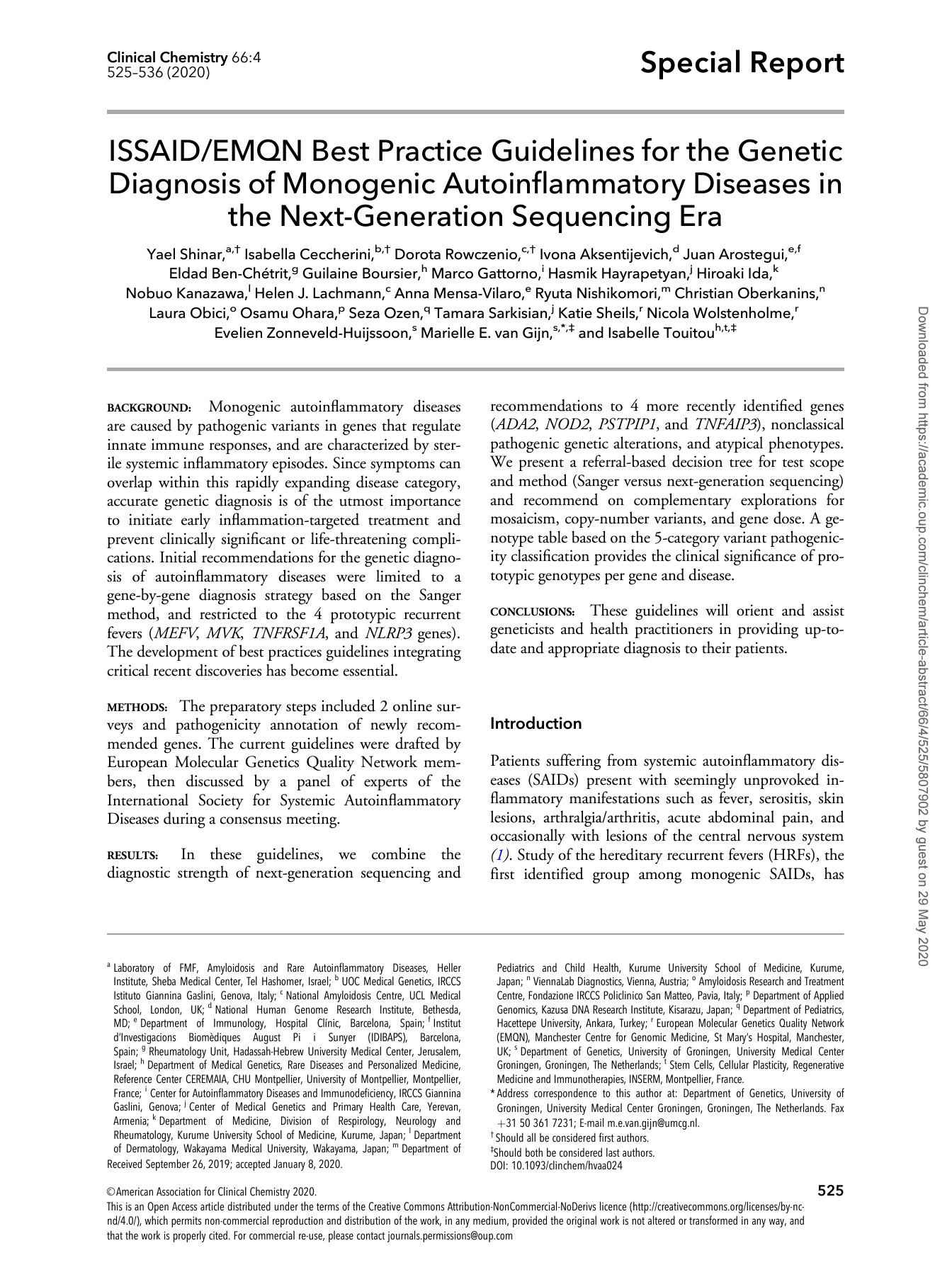Clinical Chemistry 2020;66 (4):525-536
Monogenic autoinflammatory diseases are caused by pathogenic variants in genes that regulate innate immune responses, and are characterized by sterile systemic inflammatory episodes. Since symptoms can overlap within this rapidly expanding disease category, accurate genetic diagnosis is of the utmost importance to initiate early inflammation-targeted treatment and prevent clinically significant or life-threatening complications. Initial recommendations for the genetic diagnosis of autoinflammatory diseases were limited to a gene-by-gene diagnosis strategy based on the Sanger method, and restricted to the 4 prototypic recurrent fevers (MEFV, MVK, TNFRSF1A, and NLRP3 genes). The development of best practices guidelines integrating critical recent discoveries has become essential. METHODS The preparatory steps included 2 online surveys and pathogenicity annotation of newly recommended genes. The current guidelines were drafted by European Molecular Genetics Quality Network members, then discussed by a panel of experts of the International Society for Systemic Autoinflammatory Diseases during a consensus meeting. In these guidelines, we combine the diagnostic strength of next-generation sequencing and recommendations to 4 more recently identified genes (ADA2, NOD2, PSTPIP1, and TNFAIP3), nonclassical pathogenic genetic alterations, and atypical phenotypes. We present a referral-based decision tree for test scope and method (Sanger versus next-generation sequencing) and recommend on complementary explorations for mosaicism, copy-number variants, and gene dose. A genotype table based on the 5-category variant pathogenicity classification provides the clinical significance of prototypic genotypes per gene and disease. These guidelines will orient and assist geneticists and health practitioners in providing up-to-date and appropriate diagnosis to their patients.




